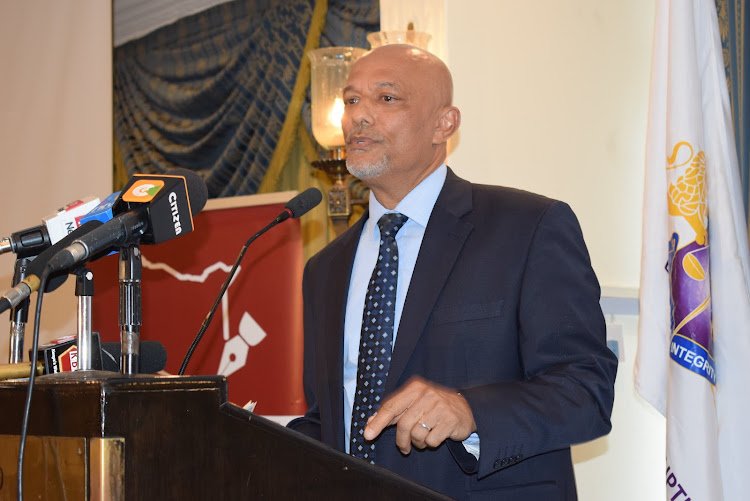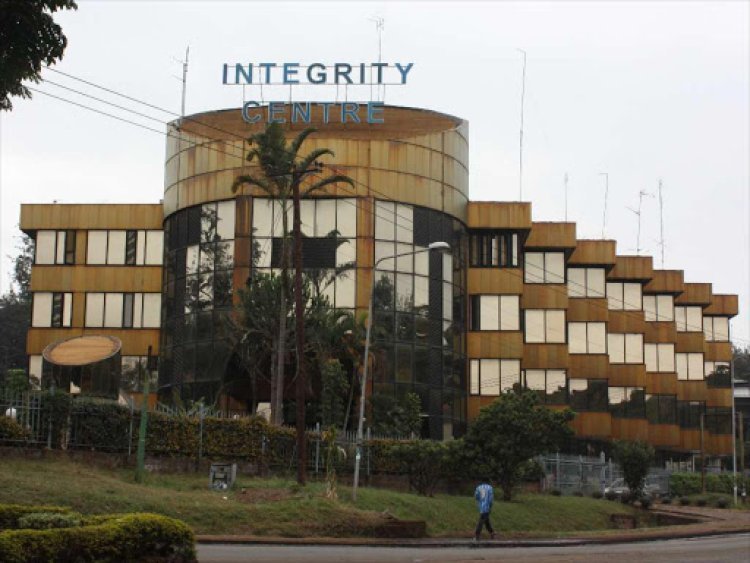17 Ways HR Managers Engage In Corruption- EACC
Other high-risk areas EACC revealed include financial management, public procurement, and project implementation.

The Ethics and Anti-Corruption Commission (EACC) announced on Saturday, November 4 that Human Resource Management (HRM) is the most corrupt department in public service.
EACC participated in the 27th Annual National Conference for Human Resource Management (HRM) practitioners recently held at Sawela Lodge in Naivasha and engaged the HRM practitioners on the nature and extent of corruption and unethical practices in their functional areas.
The Conference, organized by the Institute of Human Resource Management (IHRM), was officially opened by the Head of Public Service Felix Koskei.
In the EACC Presentation made on behalf of CEO Twalib Mbarak by the Commission’s Deputy Director in charge of Ethics Compliance Patrick Owiny, the Commission singled out Human Resource Management as one of the high corruption risk areas in Kenya’s public service, at both national and county levels.

EACC offices at Integrity Centre in Nairobi. /FILE
Other high-risk areas EACC revealed include financial management, public procurement, and project implementation.
"Corruption in HRM, EACC told the practitioners, has a direct adverse effect on institutional performance and is a major contributor to accountability shortfalls in the public service. Notably, human capital is the most valued asset in any organization because even with new technological advancements, the role of the human interface remains critical," EACC revealed in a statement.
"Corruption, if not prevented, can be entrenched and institutionalized in the procedures, systems, and policies of an organization thus hindering institutional growth and stability."
EACC further informed the HRM practitioners that the reports it has processed so far indicate that corruption has permeated most functional areas in HRM, especially the following:
- Human Resource planning;
- Payroll Management
- Recruitment and selection
- Placement, deployment, and transfers
- Training and development
- Performance management
- Management of career progression
- Rewards/Compensation and staff motivation
Nature and Extent of Corruption in HRM
Based on the reports received and investigations undertaken, EACC highlighted 17 major forms of corruption and unethical practices in HRM functions, especially county governments:
- Irregular extension of contracts,
- Retention of retired employees in the payroll
- Nepotism and favouritism
- Conflict of interest
- Double employment
- Irregular and unlawful recruitment- employing without any need or budget
- Skewed advertisements/ manipulation of qualifications to suit pre-determined recruitment decisions
- Skewed criteria for recruitment, promotions and training
- Leakage of confidential information, for instance, interview questions, job requirements
- Lack of segregation of duties in the opening of job applications, shortlisting and interviews as required
- Outright bribery in the recruitment process
- Payments for work not done- arising from leaves, absenteeism cases that are not reported or accounted for
- Payroll fraud- siphoning public funds through ghost workers who channel the funds or part of it to their masters
- Total disregard of employment procedures- e.g. recruitment without any competitive process/ no advertisements
- Forgery of academic certificates or personation of persons named in certificates
- Tampering with the HR records- an employee's documents are plucked off from files or crucial documents not filed. eg forged certificates, disciplinary records, and sexual harassment reports
- Abuse of office
EACC Interventions
EACC went on to reveal that has received about 324 reports touching on irregular employment out of which 204 have been taken up for investigation and 46 referred to various organizations for action.
"143 investigations on irregular recruitment have been finalized with recommendations for prosecution and administrative action such as recovery of lost funds and dismissal from employment. In addition, 172 investigations on the falsification of academic documents are ongoing," added EACC.
"The Commission expects professional bodies such as IHRM to intensify enforcement of professional standards among their members to complement the efforts of EACC."
The revelation comes amidst Kenya witnessing an upsurge in cases of unqualified persons masquerading as professionals in diverse fields, a matter the anti-corruption body noted should raise the alarm to various professional bodies.







